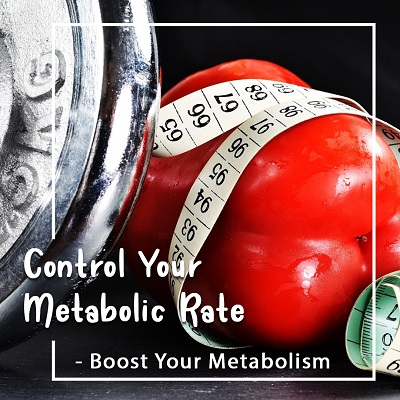 Our metabolism may slow down as we age, however, this is not a certain fate for everyone, as we do have a large degree of control over our metabolic rate. Below is a list of five tips to help you take control and boost your metabolism. As you read, you’ll find they are quite do-able, regardless of how old you are!
Our metabolism may slow down as we age, however, this is not a certain fate for everyone, as we do have a large degree of control over our metabolic rate. Below is a list of five tips to help you take control and boost your metabolism. As you read, you’ll find they are quite do-able, regardless of how old you are!
1 – Rev Up Your Workout Routine
One of the best ways to rev up your exercise routine is to indulge in interval training. This is when you ramp up the intensity of your exercise then go back to your normal speed.
For example, walk at a steady pace for five minutes, then walk faster for 60 seconds, go back to your original speed for a minute and a half and do again. Engage in this type of exercising twice a week or more. This strategy causes your body to expend more energy than it would if exercising at a fixed rate.
2 – Eat a Healthy Breakfast
Eating a healthy breakfast prevents your body going into starvation mode, which results in your metabolism slowing down. A study published in the American Journal of Epidemiology showed that individuals who ate a healthy, hearty meal every morning gained less weight than those who skipped breakfast.
Plus, those who skip breakfast are 4.5 times more likely to become obese than the people who are breakfast eaters.
3 – Keep Stress Levels In Check
Keep your stress levels as low as possible. Even if you claim that stress does not make you eat mindlessly, stress can certainly lower your metabolic rate, which is not good.
A study conducted by experts showed that women who identified as being stressed daily were found to burn an average of 104 fewer calories than those who were not. This slowing down of the metabolism cannot be felt or noticed immediately, but experts say that this decline in the amount of calories burned can translate to more than 10 pounds of weight gain in any one year period.
4 – Stick to Nutritious Organic Foods
A Canadian research study revealed that people who regularly consumed organochlorides had a lower metabolic rate. Organochlorides are toxins obtained from eating foods exposed to pesticides. These organochlorides are stored in the body’s fat cells, thereby causing interference in the body’s ‘speed’ in terms of the energy-burning process.
There are also studies which suggest that these pesticides obtained from inorganic foods may contribute to weight gain. Therefore, you should try to consume only organic produce. A few examples to be aware of are strawberries, peaches, lettuce, pears, celery, apples and cherries. These are plant-derived foods that are quite often exposed to organochlorides.
5 – Eat Plenty of Protein Foods
Experts reveal that eating protein rich foods may lead to extra energy being burned. This can equate up to an extra 150-200 calories daily. This is due to the amino acids in the proteins, which are more difficult for your body to digest (and therefore require more energy to do so) compared to carbohydrates and fats.
So, as you consume more protein, your body will also burn more calories. It is not necessary to switch to a low-carb, high-protein diet, just make sure that your daily caloric consumption includes lean protein rich foods.
Some good sources of lean protein foods that are beneficial especially if you are trying to lose weight, include eggs, cooked kidney beans, low-fat cottage cheese, lentils, fish and chicken.






